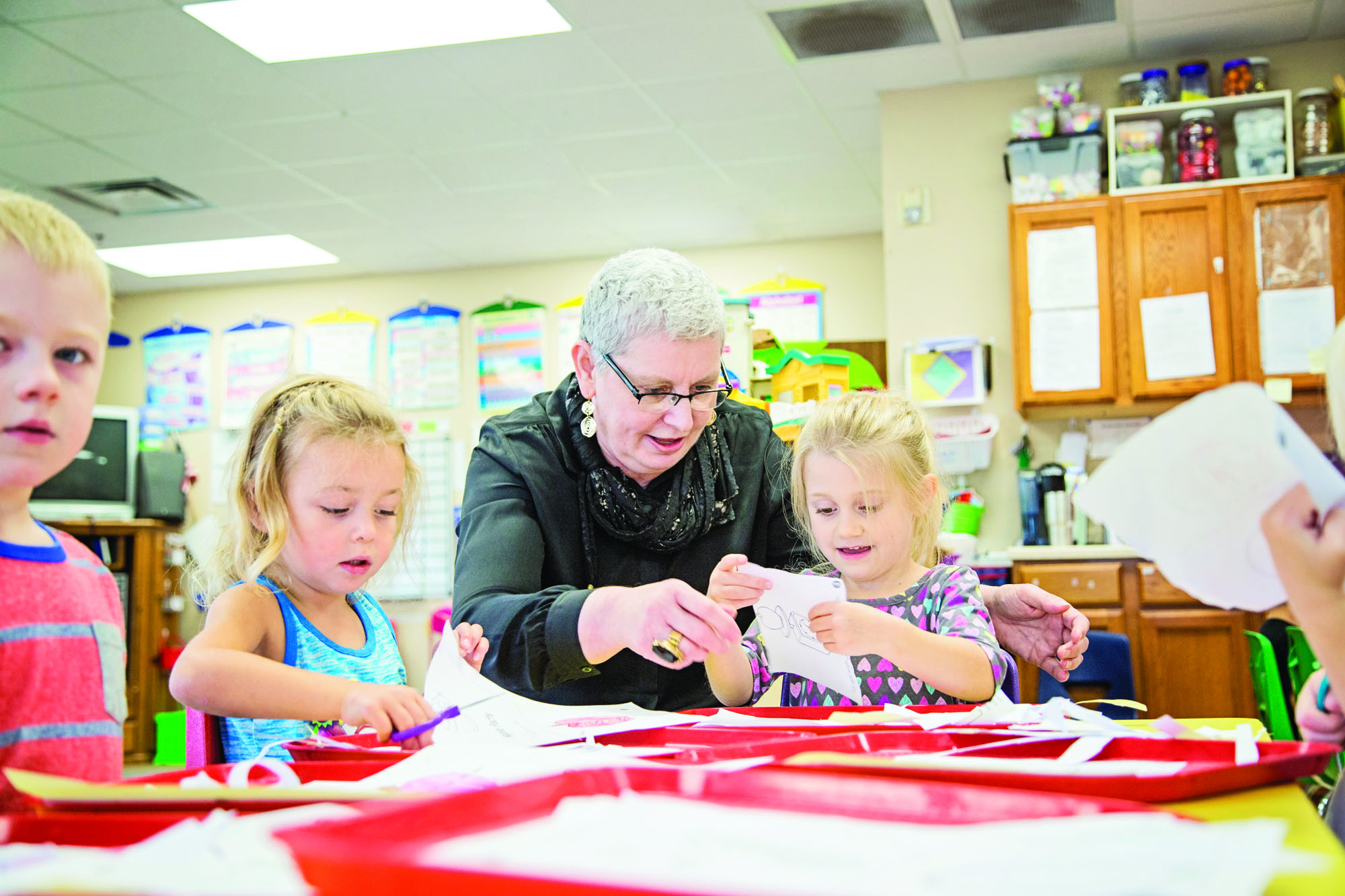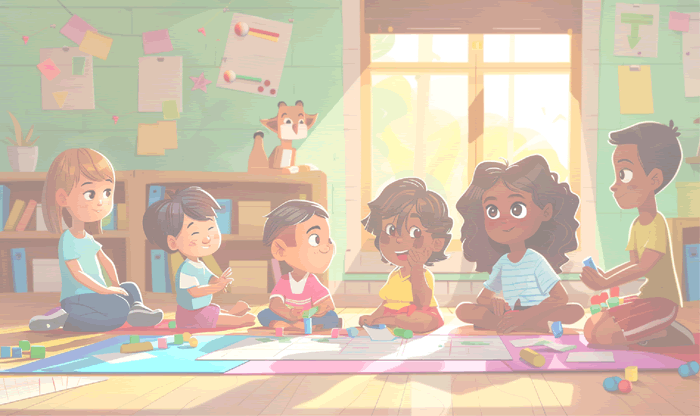Everything About Grade School: Essential Realities and Enriching Experiences for Young Learners
Elementary school plays a crucial role in forming young learners' futures. It encompasses crucial scholastic topics and nurtures social skills via organized interactions. In addition, after-school activities provide opportunities for creativity and teamwork. Adult involvement additionally boosts this foundation, sustaining kids in their scholastic trips. As these elements intertwine, they produce an extensive academic experience. Nonetheless, what specific strategies can parents and teachers utilize to optimize this growth?

Understanding the Quality Institution Educational Program
As trainees start their quality school journey, they come across an educational program developed to develop foundational abilities and expertise across numerous subjects. This educational program typically includes core locations such as mathematics, language arts, science, and social research studies. Each topic is structured to grow essential thinking, imagination, and problem-solving abilities, vital for future scholastic success.
Language arts focus on reading, writing, and interaction skills, cultivating students' ability to share themselves plainly. Mathematics presents standard principles, including enhancement, reduction, and later on, multiplication and department, laying the foundation for a lot more intricate problem-solving. Scientific research urges query and exploration, igniting curiosity about the environment, while social research studies instills an understanding of area and cultural variety.
In enhancement to core topics, the curriculum typically consists of arts and athletics, offering a versatile instructional experience that promotes both intellectual and physical growth. Quality institution serves as a necessary system for long-lasting knowing.
The Framework of Elementary School Education
While elementary school education varies by area and institution, it generally complies with a structured framework that promotes progressive knowing. Generally, elementary school includes an array of grades, commonly from preschool with fifth or 6th quality, depending upon the academic system. Each quality level represents details developmental turning points, with curricula created to build upon prior understanding.
Classes are generally arranged into core subjects, consisting of maths, language arts, science, and social studies, guaranteeing that pupils get a well-rounded education and learning. Guideline usually integrates straight teaching with hands-on activities, promoting engagement and vital reasoning.

Assessment methods differ yet normally include examinations, quizzes, and projects to review student understanding. Furthermore, educators commonly team up to create interdisciplinary systems, enhancing the finding out experience. Generally, the framework of grade college education and learning aims to grow foundational skills, prepare trainees for future academic difficulties, and advertise a love for finding out that expands past the classroom.
Social Skills Growth in Early Learners
Quality school education and learning not just concentrates on scholastic abilities however likewise plays a substantial role in the development of social abilities amongst early students. Throughout these formative years, youngsters take part in numerous activities that motivate interaction, partnership, and communication with peers. Team projects and participating understanding setups give opportunities for youngsters to exercise sharing, working out, and solving disputes.
Moreover, structured play fosters vital abilities like compassion and understanding, as kids find out to why not look here identify and react to the feelings of others. Via guided social communications, teachers aid students create crucial paying attention and conversational abilities. As kids browse relationships and team dynamics, they acquire confidence in their social capabilities.
The Duty of After-school Activities
Extracurricular activities play a significant duty in enhancing the instructional experience of elementary school trainees by supplying opportunities for personal growth past the classroom. These activities allow trainees to explore passions and abilities, fostering imagination and self-expression. Participation in sporting activities, music, art, and clubs grows synergy, leadership abilities, and a sense of belonging.
Furthermore, engaging in such activities promotes physical wellness and wellness, encouraging students to preserve an energetic way of living. Grade School. Extracurricular programs likewise offer as a system for students to build friendships and develop social skills, which are necessary for their overall growth
As trainees browse their passions outside of academics, they gain important experiences that add to their positive self-image and strength. Ultimately, these tasks play an important function in forming all-round people, preparing them for future obstacles both in and out of the classroom.
Sustaining Discovering Through Parental Participation
Adult involvement significantly enhances the instructional journey of elementary school students, as it fosters an encouraging setting that strengthens learning. Involved moms and dads contribute to their kids's scholastic success by participating in institution occasions, aiding with research, and keeping open communication with instructors. Private School. This participation not just boosts trainees' motivation however also grows a feeling of belonging and self-worth
Research suggests that children whose parents are actively involved tend to have higher qualities, much better presence, and improved behavior in college. In addition, adult involvement motivates the development of important life abilities, such as time management and obligation.
Schools can promote this involvement by hosting workshops, providing sources, and encouraging regular comments. By developing partnerships between teachers try this web-site and parents, grade colleges can ensure a thorough method to pupil advancement. Ultimately, adult participation works as a cornerstone for cultivating a positive academic experience, profiting both students and the institution area in its entirety.
Often Asked Concerns
What Are the Regular Quality College Hours for Students?
Typical elementary school hours for pupils normally range from 8:00 AM to 3:00 PM, differing by district. Many institutions include a lunch break and recess, making sure trainees have time to charge throughout the day.
Exactly How Do Quality Schools Address Diverse Knowing Requirements?
Quality institutions resolve diverse discovering demands via separated instruction, customized lesson plans, and assistance services, guaranteeing all trainees obtain appropriate sources. Educators collaborate with experts to produce comprehensive settings that promote individual development and involvement.
What Is the Function of Innovation in Elementary School Education?
Innovation in grade college education improves finding out via interactive devices, customized finding out experiences, and accessibility to substantial sources. It fosters collaboration among instructors and students, preparing youngsters for a technology-driven future while supporting diverse instructional demands.
Just How Can Moms And Dads Help With Research Properly?
Moms and dads can assist with research efficiently by creating a structured atmosphere, motivating self-reliance, pop over here supplying sources, and offering assistance without straight offering solutions. Communication with teachers also boosts understanding of assumptions and advertises scholastic success.
What Prevail Challenges Encountered by Quality Institution Trainees?
Usual obstacles encountered by quality college pupils consist of problem with time administration, recognizing intricate ideas, keeping focus during lessons, steering social dynamics, and stabilizing academic duties with after-school activities, all of which can affect their general efficiency.
As pupils begin their grade institution trip, they come across a curriculum designed to build foundational abilities and knowledge throughout different subjects. Typically, quality college includes a range of qualities, commonly from kindergarten with fifth or 6th quality, depending on the academic system. Extracurricular tasks play a significant duty in boosting the academic experience of grade college pupils by offering avenues for personal growth beyond the class. Parental involvement significantly improves the instructional journey of quality college students, as it fosters a supportive setting that reinforces discovering. By developing partnerships in between instructors and moms and dads, grade colleges can guarantee a complete strategy to student advancement.